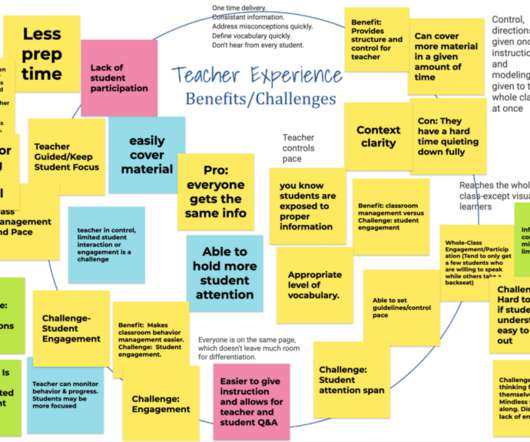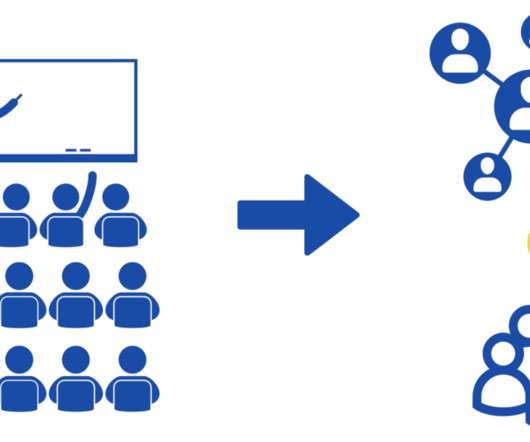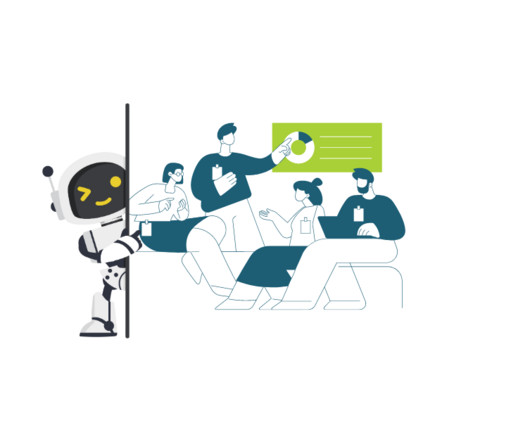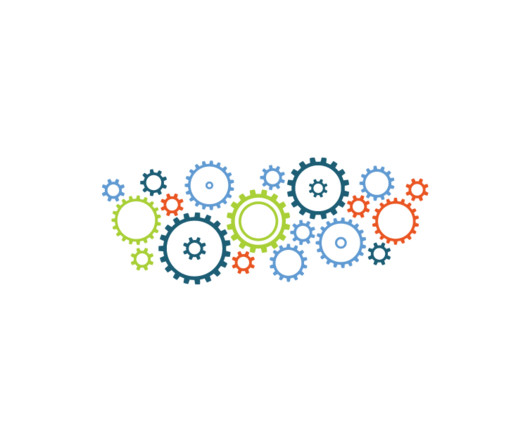Combatting the Challenges of Whole Group Lessons with Blended Learning
Catlin Tucker
OCTOBER 5, 2021
When I work with teachers shifting to blended learning, I strive to establish the WHY driving our work together. I want teachers to understand the purpose and value of the shift to blended learning. Blended learning is not a reaction to a moment. Blended Learning Benefit #1: Student Agency.













Let's personalize your content